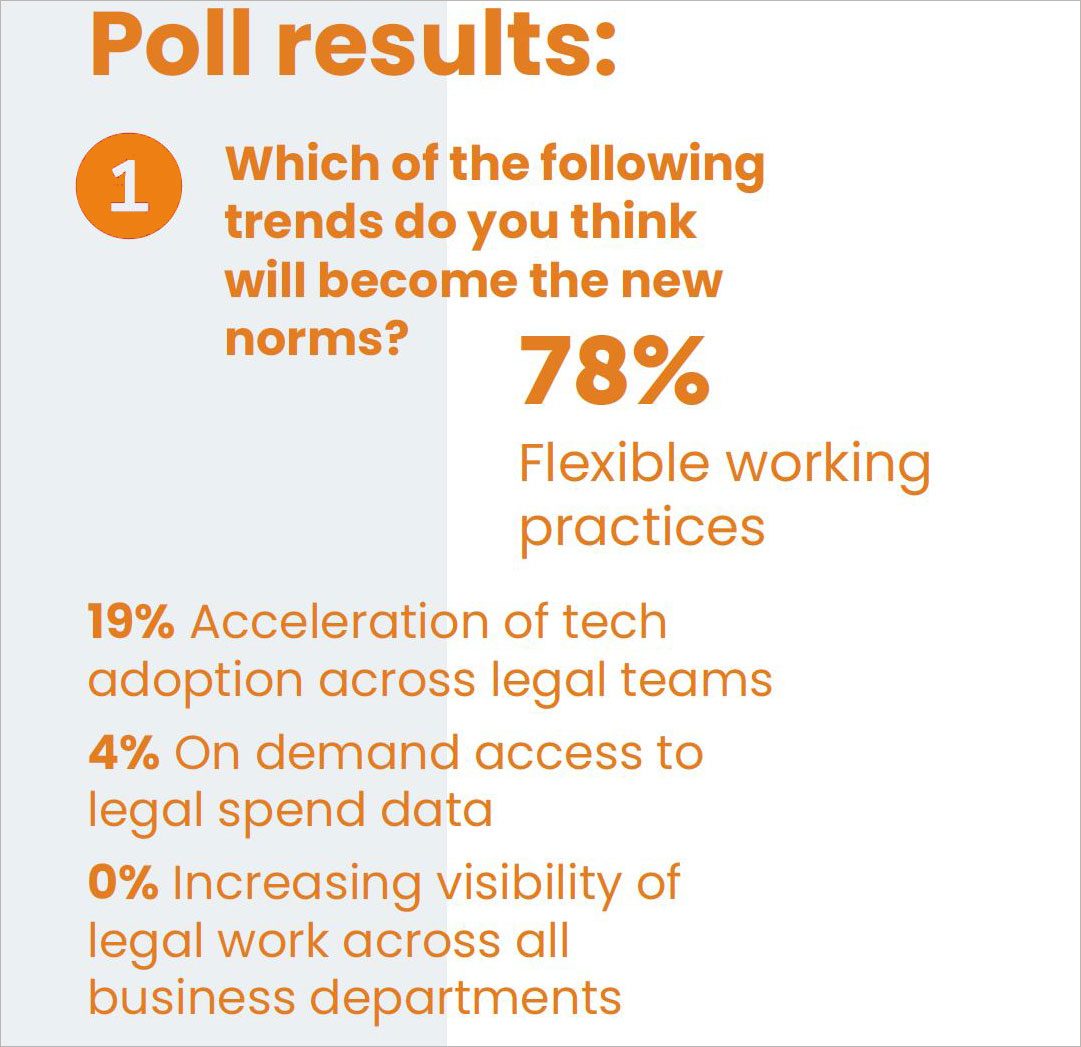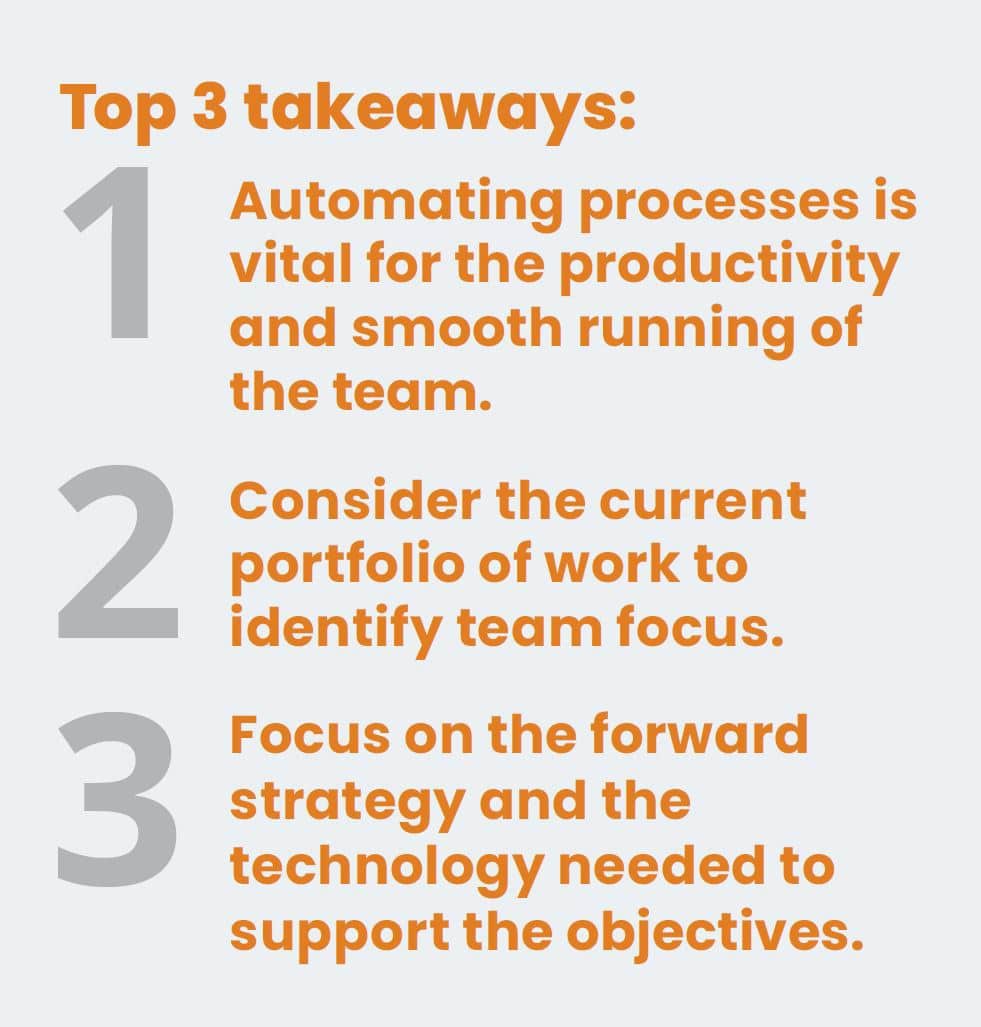As the COVID-19 lockdown begins to ease, the Alternative Events In-house Hangout turned its attention to legal teams’ position on agile working. We discussed where technology can add value to day-to-day operations while legal teams work from home (WFH) and when they return to the office.
These days, the ability for legal teams to work efficiently is critical to any organization. In fact, this is the strongest business case for agile working. And it is fair to say that technology has played an essential part in this dynamic, as the move to remote working has not led to any discernible drop in employee productivity. When questioned on effectiveness, a Legal Director at a credit reporting company, said that his team was even able to operate at 100 percent capacity because of agile working.
AGILE WORKING IN LEGAL
However, this does not mean that agile working will continue en masse. Some professional services sectors are considering establishing agile working for the employee base while allowing occasional office drop-ins. For others, though, the infrastructure dictates the need to maintain the office set up while perhaps offering more flexible working. When polled, 78 percent of the In-house Hangout audience agreed that flexible working practices will become the ‘new normal.’ In support of this hybrid approach, any technology that is deployed needs to work across the office and home environments.
Which of the following trends do you think will become the new norms?
Indeed, the COVID-19 crisis has forced many legal departments to review and consider their way of working – and all of the technical requirements. When we asked the audience to identify legal teams’ priorities right now, the response was somewhat divided: 22 percent said matter management, while 19 percent said contract lifecycle management (review and analysis), document management, and communication tools. Heading up the rear, with the remaining 7 percent, was law firm billing and relationship management.
So, evidently, organizations need to focus on the management of critical processes at this time. And for legal teams efficiency, that means effectively managing contracts and their adjacent processes.
CONTRACT AUTOMATION
Automating processes – making them more accessible across the business – is critical to the legal team’s efficiency and keeping things running smoothly. For instance, the Head of Legal Operations at an online supermarket uses software to facilitate self-service on contracts. This approach has improved accessibility. And they are now looking to increase the number of contracts on the platform so that the business can effectively self-serve, looking up information more immediately and directly.
A silver lining to the crisis has been the accelerated adoption of technology. With everyone working remotely, their reliance on technology has been fairly evident. And the argument for bigger budgets has been given more weight. The In-House Hangout audience certainly reflected this, with 43 percent of those polled saying that the original 2020 budgets for legal tech procurement are still in place. A further 9 percent actually revealed increased spending.
WORK SMART WITH YOUR LEGAL TEAM
Without a doubt, this particular crisis has made legal professionals evaluate their current situation and the shape of things to come. It is essential, then, to not only consider your company’s current work but what that work will look like six months down the road. This will go a long way in assessing your technological needs and preparing your legal team for future crises.
The CEO of a legal consulting company, advised using this time wisely, even though the workload may be heavy right now.
Automating processes is vital for the productivity and smooth running of the legal team. Also, consider how people can be productive team members when WFH. The work that they are performing should be completely measurable and deliver results based on strategic company objectives.
When it comes to legal team efficiency, it has never been more essential for legal teams to look at what is still relevant – and what will meet clients’ expectations of the legal function. And going forward, they will need to focus on other operational strategies – not to mention the technology that can be utilized to support those objectives.
Author:

Mark Langsbury
Connect with us on Linkedin










